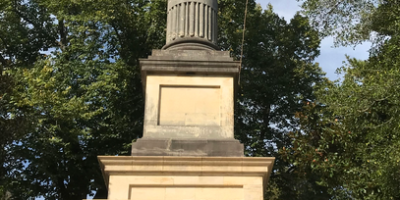By Marcus Flores
There’s an old saying that goes “I may not agree with what you say, but will defend to the death your right to say it.” This seminal apposition of liberty and tolerance was likely imported from France—Voltaire specifically—in the days when British misrule plagued the American colonies. Consequently, the ideas expressed in those eighteen words have become central to how Americans participate in their economy.
Of course, the meaning of tolerance has been subject to historic vicissitudes. At one time in the United States, African Americans were begrudgingly accepted by their white counterparts so long as they steered clear of certain businesses and sat in specified bus seats (though this was no guarantee against overt acts of violence and injustice). It wasn’t without tireless effort that African Americans eventually gained undiminished citizenship status.
Still, prejudices run deep, particularly when alloyed with a limited religious perspective. Christopher Hitchens, in his book God is Not Great, argued that Dr. Martin Luther King Jr.’s influence stemmed from his articulation and intelligence. Because Southerners frequently invoked the Good Book to buttress their pro-segregation views, Dr. King was able to spot the hypocrisy and therefore “outpreach the rednecks” by wielding their own religious text against them. Consequently, no one takes seriously the Biblical authorization of slavery or segregation these days.
Yet, other chapters of the Good Book are being used elsewhere.
Hands On
The screen-printing company known as Hands On Originals recently exemplified a modern religious lapse when it cited personal religious conviction as the reason it could not fill an order of shirts for the organizers of a gay pride rally in Lexington. The refusal was immediately denounced by many members of the community as a species of discrimination, while others upheld the business’s supposed freedom to sell (or not) based on conviction. As a champion of the LGBT community and the free market, I confess the event left me suspended in a state of dissonance. When social and religious freedoms clash, who wins?
Certainly not Blaine Adamson, owner of Hands On Originals, who attempted to defend his decision by citing equal opportunity requirements. Apparently because he hires employees of various sexual orientations, he can refuse service to them—despite the fact Lexington ordinance says otherwise. Since most business owners are likely acquainted with the law, it seems at least plausible that Adamson had in it in mind that he would make a religious statement veiled as an exercise in the free market. A friend of mine flatly observed that if Hands On advertised by way of its shirts, why not avoid a political raucous by omitting the Hands On logo from the order? It’s not like it would inflict any harm to Adamson’s business were he to produce these modified shirts. In fact, he’d quite literally stand to profit from it.
There is, however, a caveat to this sort of reasoning. Consider a hypothetical scenario of the Hands On incident, only in reverse. That is, suppose a homosexually owned screen-printing company is asked to provide shirts for a defense of marriage rally. The design would draw from the paucity of Bible verses supposedly condemning homosexuality. By the previous arguments, the homosexual company would have virtually no legal leverage for which to decline the business. They would have to hold their nose and fill the order.
I liken my attempt to reconcile social and religious freedoms to a kind of mental tennis match, only to find the fairest solution is one in which both players lose. Religious conservatives might have to grit their teeth and serve to homosexuals, just as the homosexuals would have to do in a reversal of the situation.
As for Lexington, signs suggest that residents may be mature enough to accept that both parties’ feelings may be offended in the endless task to secure individual liberties. Lexington’s swift reaction to Hands On was laudable in that both Fayette County Schools and the University of Kentucky—not exactly small customers—quickly reviewed and in some instances, halted, massive orders from the company. They spotted the discrimination and had no interest in being involved with such a company. Facing a legal investigation, Mr. Adamson, meanwhile, has scooped out a mortise and planted his cross in it.




Leave a Reply